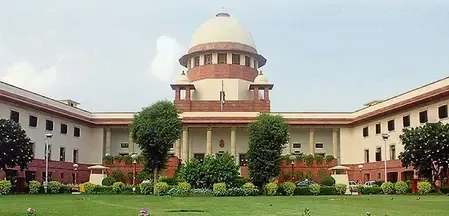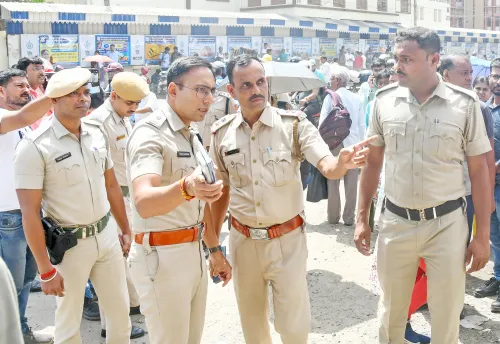Why Did the Supreme Court Reject the Plea Against Assam’s Indiscriminate Deportations?

Synopsis
Key Takeaways
- The Supreme Court dismissed a plea regarding deportations in Assam.
- The petition highlighted human rights concerns and due process violations.
- Individuals are being deported without necessary legal safeguards.
- The situation affects marginalized communities, risking statelessness.
- Judicial oversight is essential in deportation cases.
New Delhi, June 2 (NationPress) The Supreme Court has declined to entertain a petition from the All B.T.C. Minority Students' Union (ABMSU), which raised alarms regarding the Assam government's indiscriminate efforts to detain and deport individuals suspected of being foreigners.
A Bench, consisting of Justices Sanjay Karol and Satish Chandra Sharma, recommended that the petitioning organization seek relief from the Gauhati High Court.
"We advise you to approach the Gauhati High Court. This petition is dismissed," stated the apex court.
The writ petition submitted by ABMSU, a social and student organization operating in Bodoland, Assam, challenged the increasing instances of deportations carried out by the Assam Police and administrative bodies through informal 'push back' methods, lacking judicial scrutiny or compliance with the protective measures outlined in the Constitution or by the Supreme Court.
According to the petition, this 'push back' policy—being implemented in border regions such as Dhubri, South Salmara, and Goalpara—is not only legally untenable but also poses a risk of rendering many Indian citizens stateless, particularly those from economically disadvantaged and marginalized backgrounds who have either been declared foreigners ex parte or lack access to legal support to contest their status.
It further asserted that these actions violate the fundamental rights enshrined in Articles 14, 21, and 22 of the Constitution and contravene established judicial precedents set by the Supreme Court, including the ruling in the 'Re: Section 6A of the Citizenship Act 1955' case.
Despite existing safeguards, individuals are being detained and deported without notification of Foreigners Tribunal rulings, without nationality verification from the Ministry of External Affairs, and often without being informed of their rights to seek appeal or review, the petition argued.
The petition requested a declaration that deportation without due process—including judicial confirmation, MEA verification, and the exhaustion of available remedies—is unconstitutional, seeking remedial action through the NHRC and legal aid authorities to safeguard the rights of affected individuals.









